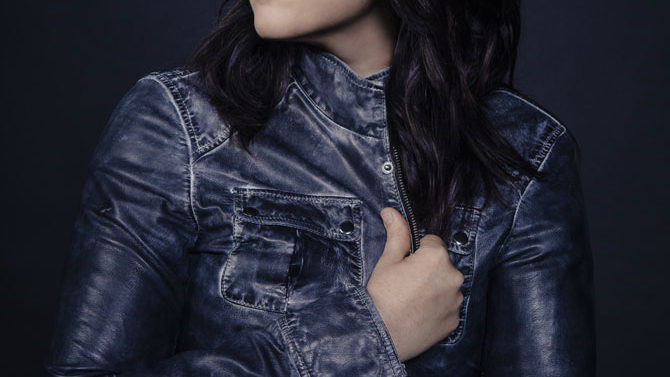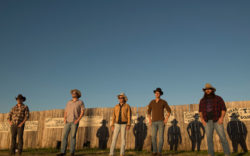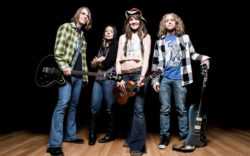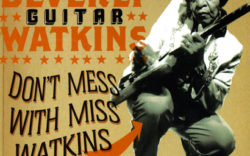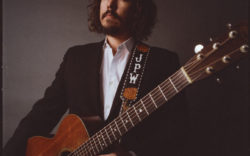Nashville singer-songwriter Brandy Clark’s career did not gain traction until she was in her mid-30s, making her an inspirational figure for artists struggling to see their dreams through. Since 2011, she’s been a go-to writer for Keith Urban, Miranda Lambert, Kacey Musgraves and others, while her solo career took off with the 2013 release of 12 Stories.
At age 41, Clark counts herself fortunate for taking the long route to country stardom.
“I think, for sure, it happened for me the way it was supposed to happen,” she says. “If I’d had the same opportunity at 25 that I had at 35, I would have done anything. If somebody had said, ‘Hey, we need you to do this and this and this,’ I would have been so starry-eyed I would have done it. By the time it came around to me, I knew who I was, what I wanted to say, and what I wouldn’t say or do. That’s just as important as what you will do.”
Clark credits the internet and social media with much of her success: It’s simpler now for listeners to research Clark than it would have been for a fan in the ’60s to brush up on Harlan Howard trivia. More importantly, roots artists existing outside the mainstream can now be heard by a wider audience.
“When I first moved to Nashville, if you weren’t on a major label, there wasn’t a chance of you being heard,” Clark says. “We were going to self-release [12 Stories], and then an independent label picked it up. It started to get legs, and then Warner Brothers got ahold of it. Not that long ago, that wouldn’t have even been a possibility.”
Much of the press about Clark has focused on the fact that she is openly lesbian—a rarity in the country world—but her sexuality has never been a professional focal point.
“I try to just focus on the music, but I’m also not ashamed of my sexuality,” she says. “I never felt the need to keep it quiet, but when I was 25 that’s what I might have done. That’s a major reason I feel lucky this career didn’t happen for me until later. That’s the thing I would’ve tried to keep a secret, and I probably would have ruined myself over.”
The lack of press, peer or fan backlash against Clark proves today’s country audience is more open-minded than some might expect, seven years removed from Chely Wright’s headline-making decision to come out of the closet.
“People like Chely Wright had to come before me,” Clark says. “The pressures she was under were different than the pressures I am under. She’s somebody who was kind of a sex symbol in country music. I’m not. Things had to go the way they went for her for it to be easier for me, as sad as that is. And the person after me, it’ll be easier for them.”
Clark grew up in rural Morton, WA near grandparents with a classic country record collection, providing her a respite from ’80s pop-country and introducing her to the legendary Loretta Lynn.
“[Lynn] wrote about what was real, even if it was controversial,” Clark says. “It’s crazy now to think a song like ‘The Pill’ was controversial, but it was. I’m drawn to and like to write things that speak a truth to me. Sometimes that’s not too pretty or commercial.”
Clark’s own songwriting tells truths about everyday people who are just trying to make it through the day. These stories stir empathy for someone like the 35-year-old former homecoming queen who never left her hometown. Like Clark, these flawed characters are navigating a life filled with unexpected detours and reconsidered dreams.
“What music has done for me, and what I want my music to do for other people, is make them feel a little less alone,” Clark says. “For most of us, life doesn’t turn out the way we plan, even if it turns out better than we planned it. We all struggle with that. And I honestly think that we all struggle in our lives, no matter how good they may be, with thinking it’s not as great as it should be.”
Like what you just read? Support Flagpole by making a donation today. Every dollar you give helps fund our ongoing mission to provide Athens with quality, independent journalism.



